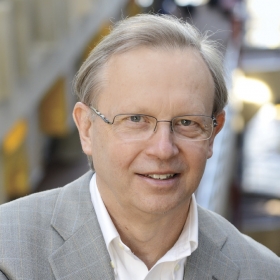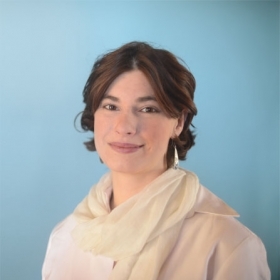In mythology, Narcissus fell in love with his own reflection in a pool of water, and the term “narcissism” today indicates self-love and self-centeredness.

In mythology, Narcissus fell in love with his own reflection in a pool of water, and the term “narcissism” today indicates self-love and self-centeredness. Professor of Psychology Paul Wink, however, can attest that the concept is much more nuanced than that. He has proven empirically that there are two distinct types of pathological, or unhealthy, narcissism: overt and covert. The two types share “a grandiose sense of self and a sense of entitlement, accompanied, at the same time, by a deep-seated sense of vulnerability,” Wink explains, but overt narcissists display their grandiosity, while covert narcissists display their vulnerable self, “with the grandiosity lurking in the background.”
And then there is the positive form of narcissism. People who are “healthily narcissistic,” Wink says, “emphasize self-growth and self-exploration.”
For research and insights like these, the American Psychological Association (APA) and the Society for Personology honored Wink with the 2014 Henry A. Murray Award, which recognizes a distinguished body of work in the study of individual lives. In addition to narcissism, Wink’s research interests include adult development, religion and spirituality, wisdom, altruism, and cross-cultural conceptions of the self, all of which fall broadly within the sphere of personality psychology, or “how people differ from each other, and the implications for everyday life.”
Henry A. Murray was an eminent personality psychologist who advocated studying individuals within their cultural and biological context—an approach he called “personology”—and Wink received the award as much for his methods as his research. Wink particularly emphasizes the importance of analyzing individual lives alongside quantitative data, taking history and culture into consideration, and utilizing multiple theories—all of which he plans to discuss in his Murray Award address at the APA meeting in August.
While Wink’s research interests are wide-ranging, different areas overlap in unexpected ways. For example, narcissism and spirituality are linked: Since the 1980s, some scholars have argued that Americans who identify themselves as spiritual but not religious are more likely to be unhealthy narcissists. According to this argument, traditional religion emphasizes responsibility and engagement in the community, while spirituality untethered from religion is selfish and self-serving.
Wink took up the subject of religion and spirituality when he revived a longitudinal study of Californians that began in the 1920s, when the subjects were children; he interviewed them when they were in their 70s. He and Michele Dillon, professor of sociology at the University of New Hampshire, analyzed the findings and showed that spirituality is related to the healthy form of narcissism. Furthermore, they found that people who are spiritual are just as likely as those who are religious to be altruistic and concerned for their communities.
Wink began teaching at Wellesley in 1992 and is now chair of the psychology department and is also the Class of 1949 Professor in Ethics. In addition to teaching courses in abnormal psychology, systems of psychotherapy, and clinical assessment, he finds time to continue expanding his research in new directions. In one current project, he is examining the differing attitudes Wellesley students of Chinese, Korean, and European descent have toward their bodies.
Another study focuses on wisdom, which is related to healthy narcissism and spirituality because it, too, is associated with self-exploration. Wisdom, Wink says, is typical of people “who are interested in personal growth and more open to new experiences, as opposed to people who are more conventional.”


